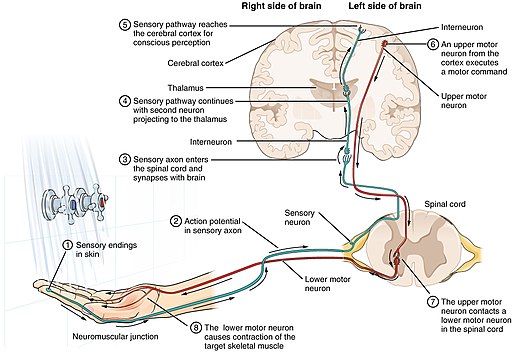Have you ever wondered why you feel pain more intensely than others? You might just share a special genetic connection with our ancient ancestors, the Neanderthals! In a groundbreaking study published in Communications Biology, scientists have unearthed remarkable insights into how our Neanderthal ancestry influences modern human genetics, particularly in pain sensitivity. Led by a consortium of international universities, the researchers deeply examined the genetic nuances that dictate our sensory responses to pain.
Central to the study was the SCN9A gene, notorious for its role in sensory neurons and pain perception. Three particular Neanderthal variants of this gene were found to be integral in modulating sensitivity to pain caused by skin pricking after exposure to mustard oil. When the skin is pricked, we learned that sensory neurons immediately engage; dendrites, intricate extensions of the neurons, adeptly capture stimuli from nerve cells within the skin. This triggers a signal that travels along the neuron’s axon, a specialized tail-like conduit, channeling the impulses toward their destination. At the terminus of the axon, the signal reaches a synaptic cleft, a minute gap where the first neuron communicates with the dendrites of the subsequent neuron, ensuring the continuity of the pain signal’s journey through the nervous system. These unique variants in the Neanderthal seem to lower the pain threshold, rendering individuals more susceptible to experiencing heightened pain from specific stimuli.
The study unfolded with meticulous attention to detail, analyzing the pain thresholds of nearly 2,000 individuals subjected to various stimuli. A fascinating revelation was the prevalence of these Neanderthal gene variants, particularly amongst populations with pronounced Native American ancestry. This leads to intriguing speculations regarding the genetic tapestry and its evolution over time due to migration and population-specific developments.
One captivating aspect of the study is its exploration into whether these Neanderthal-inherited genetic variants were an evolutionary advantage. The specialized role of these genes in sensitizing sensory neurons is seen as a survival trait, aiding in avoidance behaviors against potential harm.
This research brings up the intriguing possibility that Neanderthal-inherited genetic variants may have been an evolutionary advantage. Specifically, it looks at genes that could make sensory neurons more sensitive, potentially a survival trait to avoid harm. Personally, this part of the study stands out. It makes me wonder what other traits we might have inherited from our ancient ancestors. It seems that our genetic past could have a strong influence on fundamental aspects like pain perception.
The study emphasizes that these findings are initial insights. Neanderthal genetics play a role in pain perception, but many other factors, like environment and psychology, also contribute. This comprehensive approach to understanding pain is a big step forward, and there’s still much more to learn. It raises interesting questions about how our evolutionary past might influence other aspects of human biology. What are your thoughts on these new findings? Let’s discuss.




Leave a Reply